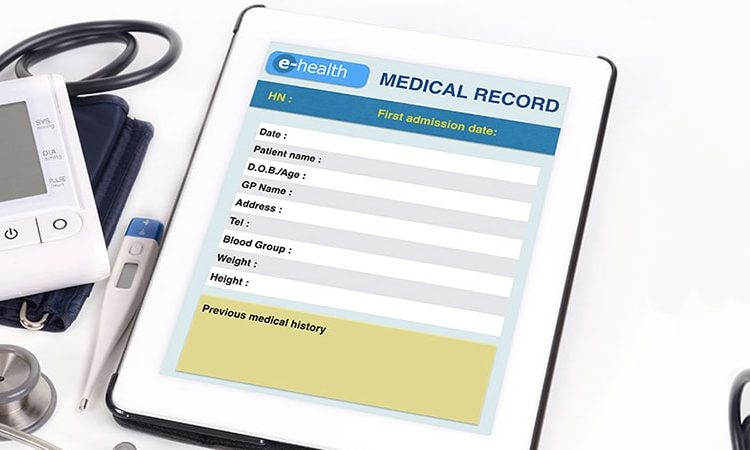Physicians, take note: An analysis of more than 40,000 electronic medical records has found troubling signs of racial bias in the notes.
The study, by a team at the University of Chicago, found that physicians appear to be much more likely to use negative words to describe their Black patients in the electronic health record (EHR) and may communicate racism through the use of words and descriptions with negative connotations.
“Compared with White patients, Black patients had 2.54 times the odds of having at least one negative descriptor in the history and physical notes,” Michael Sun, a third-year medical student at the University of Chicago Pritzker School of Medicine and lead author of the study, told Medscape Medical News. “Our findings raise concerns about stigmatizing language in the EHR and its potential to exacerbate racial and ethnic health care disparities.”
Previous studies have looked at stigmatizing language in medicine and bias in clinical decision support. But Sun’s group said their study, published January 19 in Health Affairs, appears to be the first to quantify such language in EHRs.
The researchers concluded that racism exists not only on the part of individual practitioners but systemically throughout medicine.
“We found that Black patients at an urban academic medical center had disproportionately higher odds of negative patient descriptors appearing in the history and physical notes of their EHRs compared with White patients. This difference may indicate implicit racial bias not only among individual providers but also among the broader beliefs and attitudes maintained by the health care system,” they report.
Analysis of 15 Terms
For the study, Sun’s group looked for sentences containing a negative descriptor of a patient’s behavior in 40,113 history and physical notes created from January 2019 through October 2020 from 18,459 adult patients.
An expert panel from the Health Equity Commission of the Society of General Internal Medicine helped develop the list of 15 descriptors used in the analysis: (non-)adherent, aggressive, agitated, angry, challenging, combative, (non-)compliant, confront, (non-)cooperative, defensive, exaggerate, hysterical, (un-)pleasant, refuse, and resist.
The researchers excluded patients with dementia, who often have negative descriptors applied to them because of the nature of their illness. But other patients who often are disparaged were included, such as those with substance use disorders and mental health conditions, which “may be associated with negative unconscious bias,” they wrote.

Dr Elizabeth Tung
Elizabeth L. Tung, MD, assistant professor of medicine at the University of Chicago, and senior author of the study, called the findings unsurprising. “As the pandemic has illustrated to the world, structural racism exists in healthcare, and earning the trust of Black communities is something we urgently need to work on,” Tung told Medscape Medical News.
However, she said, the COVID-19 pandemic appears to have changed how healthcare providers use the EHR. Compared with the prepandemic period, negative descriptors crop up significantly less often.
“While it is possible that this was simply an artifact of COVID-19 minimizing interactions between providers and patients, I’m personally a bit more optimistic,” Tung said. “The pandemic coincided with one of the largest social reckonings on racism in America that we’ve seen in recent history. And I think that reckoning, combined with healthcare workers seeing COVID-19 disparities with their own eyes, really changed the way healthcare workers saw some of their patients and documented about them.”
Tung said physicians should address “structural competency,” meaning that they should be capable of identifying structures of racism as they play out in the day-to-day lives of their patients and how these structural factors ultimately lead to poor health outcomes. A physician with structural competency might probe the reasons a patient was not taking medication, such as concerns about being able to pay for the treatment or the patient is still developing trust in their physician.
Tung said individual physicians can start to tackle this issue through self-awareness, and physician groups can advocate for clearer recommendations and guidelines for professional documentation.
“This story really builds upon existing racial and healthcare justice literature and shows that minoritized patients still face racial discrimination during clinical encounters,” Nwamaka Eneanya, MD, MPH, assistant professor of medicine and epidemiology, University of Pennsylvania, Philadelphia, who was not an author of the study, said. “We must acknowledge that such biases won’t go anywhere without systemic interventions that focus on improving awareness and increasing accountability among clinicians.”
Some of the authors of the study received funding from the National Heart, Lung, and Blood Institute and the National Institute of Diabetes and Digestive and Kidney Diseases.
Health Aff. Published online January 19, 2022. Full text
Howard Wolinsky is a medical journalist in Chicago.
For more news, follow Medscape on Facebook, Twitter, Instagram, and YouTube.
Source: Read Full Article
